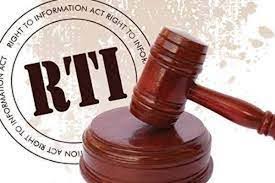Context:
A recent ruling by the Madras High Court declared that cooperative societies do not fall under the ambit of the RTI Act of 2005.
What is a Cooperative Society?
- A cooperative society is a voluntary group formed by individuals to work together and advance their economic interests through mutual support.
- Members of the society pool resources with an aim to benefit collectively and ensure that everyone earns a profit.
Status of the Cooperative Societies in India:
- The 97th Constitutional Amendment Act 2011, gave constitutional status and protection to the cooperative societies.
- Article 19(1)(c) provides a Fundamental Right to form cooperatives.
- Article 43B was inserted in Part IV of the Constitution as a Directive Principle of State Policy for the promotion of cooperative societies.
- Part IX B ‘The Cooperative Societies’ was inserted with provisions for incorporation, regulation, and winding up of cooperative societies.
- The National Co-operative Union of India (NCUI) and the National Co-operative Development Corporation (NCDC) play key roles in promoting the cooperative movement in India.
The following laws govern the functioning of Co-operative Societies in India.
- State Co-operative Societies Acts for different individual states.
- Multi-State Co-operative Societies Act, 2002 for the Multi-State Co-operative Societies which has operations in more than one state.
Background of the Case
- A member of the ‘Madhanam Primary Agriculture Cooperative Credit Society’ sought information to establish that the society had provided numerous crop loans based on forged property documents and later waived off those loans on the basis of the decisions taken by the State government to assist poor farmers.
- However, after not getting a satisfactory response, he appealed under the RTI Act with the Tamil Nadu Information Commission (TNIC).
- TNIC in its ruling in May 2022 directed the cooperative society to reveal all details sought by the petitioner.
- The cooperative society then challenged the directive order of TNIC in the Madras HC.
What the Madras HC has said?
- The Madras High Court overturned the Tamil Nadu Information Commission’s (TNIC) directive for ‘Madhanam Primary Agricultural Cooperative Credit Society’ to furnish information regarding the disbursal of crop loans and the list of beneficiaries of jewel loan waiver of the society from 2015 to 2021.
- The High Court held that a cooperative society is an autonomous body and not a public authority as defined under section 2(h) of the RTI Act and thus not bound by the RTI Act 2005.
- The High Court concurred with the view that a cooperative society was not a statutory body performing any public function and therefore it would not fall under the definition of ‘the State’ as defined under Article 12 of the Constitution.
- The High Court also relied on the Supreme Court’s decision in ‘Thalappalam Service Cooperative Bank Ltd. and Others Vs. State of Kerala and Others case’ (2013), which had held that a cooperative society was not covered under the RTI Act.

